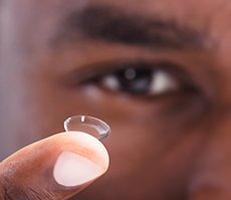Myopia Specialist
Harlem VistaSite Eye Care
Optometry located in Harlem, New York, NY
Nearsightedness, or myopia, affects 40% of Americans. At Harlem VistaSite Eye Care in New York City, the team offers comprehensive treatment to monitor myopia in adults and children and control its progression. As they grow up, your child is at risk of extreme myopia and eye disease. That’s why it’s essential that you schedule an appointment with a practitioner who cares and who has expertise in the field. Contact the office today by phone or online.
Myopia Q & A
What causes myopia?
Otherwise called nearsightedness, myopia refers to a refractive error in the eye that makes your distance vision blurry without affecting your near vision.
When the eyeball is too long, your cornea and lens can’t focus light properly. As a result, you run the risk of developing myopia.
Why is myopia control necessary?
Myopia control is essential to track the progression of your or your child’s myopia. Myopia can worsen as your child gets older, especially when your child’s eyes become longer and grow into their adult shape. In most cases, myopia worsens up until young adulthood and stays with you throughout adulthood.
Moderate to high myopia, or degenerative or pathologic myopia, can progress at a much faster rate. This type of myopia can expose your child to eye problems, including retinal detachment, cataracts, or glaucoma. Each one of these issues can lead to vision loss.
As you get older, degenerative myopia can get worse, often leading to the wear and tear of photoreceptor cells, and increased vision issues.
How is myopia controlled?
During your appointment at Harlem VistaSite Eye Care, the team discusses various ways in which they can control your or your child’s myopia. This can include eyeglasses or contact lenses.
If myopia is rapidly progressing, they can recommend a few techniques to slow it down:
Multifocal contact lenses
Multifocal contact lenses, especially the soft kind, are known to correct nearsightedness and slow down its progression.
Children wearing multifocal contacts have 25% less myopia progression and less eye elongation as opposed to children who wear single-vision lenses. The practice recommends that your child wear these contacts for five to seven hours every day for the best results.
Atropine
Your doctor can recommend low-dose atropine eye drops to slow down the progression of myopia and prevent the development of complex vision problems.
You or your child should put in these eye drops right before bedtime. During the night, the atropine works by binding to various growth receptors in the eyes, effectively obstructing the stimulation that triggers myopia.
You or your child should continue to wear eyeglasses or contact lenses during the day. The earlier you start atropine treatment, the better the results.
Orthokeratology
Orthokeratology is a specially designed contact lens that you wear at night. The contact lens works to reshape the cornea. You should remove these contacts upon waking up and use your eyeglasses or contact lenses as indicated by the practice.
If you think your child has myopia or you have it yourself and want an experienced practitioner to follow its progress, get in touch with Harlem VistaSite Eye Care today by phone or online to book an appointment.








